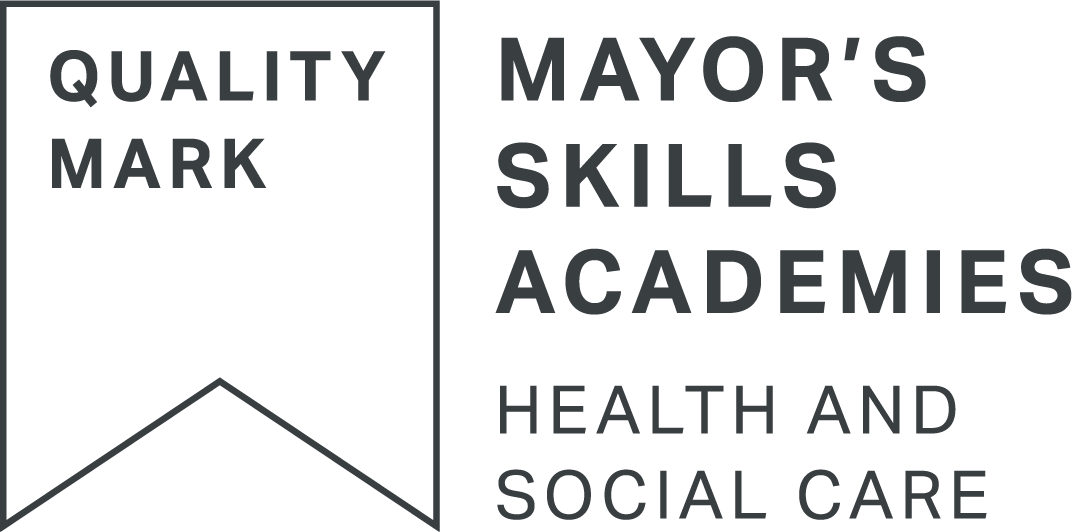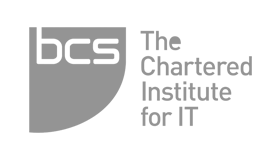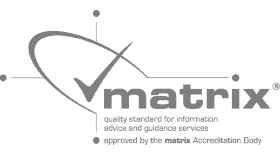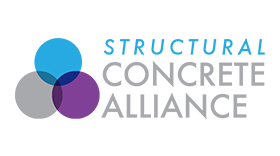Lean management is an approach to running an organisation that supports the concept of continuous improvement, a long-term approach to work that systematically seeks to achieve small, incremental changes in processes in order to improve efficiency and quality.
-
Lean Six Sigma Yellow Belt – ISO18404
The Lean Six Sigma (Yellow Belt) Training Certification has been created for individuals and businesses looking to implement the Lean Six Sigma methodology within their projects and work responsibilities.
Accredited by CEPAS, (a Bureau Veritas company) and globally recognised in accordance with the ISO 18404 standard, Lean Six Sigma qualified candidates are in high demand as they possess valuable problem-solving skills which can help companies reach business solutions, ensure greater customer satisfaction, save costs and improve business efficiency whilst assuring quality control during the entire process.
The Lean Six Sigma methodology combines two unique approaches:
- Lean: This involves maximising customer value and minimising the areas of waste in processes. This enhances customer satisfaction and reduces wasted resources.
- Six Sigma: This part refers to the continued effort to reduce process and product variation through a defined project approach.
Together, these methodologies make up the Lean Six Sigma approach which has been proven to successfully reduce costs, improve staff morale, retain business and increase customer satisfaction within many organisations all over the world.
This two-day training course has been designed to teach you the core skills and techniques that make up the Lean Six Sigma methodology to enable you to pass the Lean Six Sigma exam and confidently implement your new-found knowledge within your organisation’s projects.
By the end of the course, you will have developed the knowledge to comfortably:
- List the basic tools and principles that underlie the Lean Six Sigma improvement model
- Identify opportunities to improve a process
- Define project improvement goals
- Identify how to plan for and conduct data collection to uncover root causes
- Describe how to verify root causes of process issues
- List how to implement simple but effective improvement techniques and concepts
- Identify how to sustain the gain of process improvements
Once you have obtained your Lean Six Sigma Yellow Belt certification, you have the option to continue your studies and earn your Lean Six Sigma Green Belt and Black Belt qualifications.
Is the Lean Six Sigma (Yellow Belt) course right for me?
Learning the Lean Six Sigma methodology is a great way to help you improve your capabilities as a leader in your organisation. The Yellow Belt qualification is the ideal starting point for learning more about the basic principles of Lean Management and Six Sigma.
Course Details
What are the Lean Six Sigma (Yellow Belt) course topics?
- Fundamental Lean and Six Sigma principles
- The benefits of blending the two in a unified approach
- The DMAIC methodology
- Project targeting criteria
- What makes a great Lean Six Sigma project?
- Lean Six Sigma concepts and tools
- Key elements of successful Lean transformation
- Project selection
- Team roles
- Voice of the Customer (VoC)
- Value Stream Mapping
- Value-Add versus Non-Value-Add
- Root Cause Analysis
- Fishbone Diagrams
- Lean Flows & Work Cells
- 5S’s (Sort, Straighten, Shine, Standardise & Sustain)
- Visual Tools
- Capacity and Bottlenecks
Delivery: Virtual classroom
Virtual Classroom Costs (Including Exams): £795
-
Lean Six Sigma Green Belt – ISO18404
The Lean Six Sigma (Green Belt) Training Certification accredited by CEPAS, (a Bureau Veritas company) is a globally recognised qualification in accordance with the ISO 18404 standard.
Candidates who hold Lean Six Sigma qualifications are highly sought-after by many organisations as they are specially trained to help businesses save costs, improve efficiency, reach business solutions as well as ensure greater customer satisfaction while implementing quality control processes.
Lean Six Sigma is made up of two approaches: Lean Management and Six Sigma. The Lean methodology focuses on maximising customer value and the reduction of wasted resources. Six Sigma, on the other hand, is a method that demonstrates how a business can continue to reduce process and product variation through a defined project approach.
Together, Lean Six Sigma has proven to be a successful methodology and is used by many organisations around the world. Not only does it help businesses reduce costs, but it also helps them to achieve business retention, improve staff morale as well as increase customer satisfaction.
ISO 18404:2015 is the international standard for both Lean and Six Sigma which defines the management systems requirements for successfully managing and utilising the Lean and Six Sigma methodologies, as well as the necessary competencies for individuals and businesses implementing the two approaches in their projects.
This five-day training course has been designed to teach you the core skills and techniques that make up the Lean Six Sigma methodology to enable you to pass the Lean Six Sigma exam and confidently implement your new-found knowledge within your organisation’s projects.
Once you have completed this course, you will be able to:
- List the basic tools and principles that underlie the Lean Six Sigma improvement model
- Identify opportunities to improve a process
- Define project improvement goals
- Identify how to plan for and conduct data collection to uncover root causes
- Describe how to verify root causes of process issues
- List how to implement simple but effective improvement techniques and concepts
- Identify how to sustain the gain of process improvements
Once you have obtained your Lean Six Sigma Green Belt certification, you can move on to achieve your Black Belt qualification.
Is the Lean Six Sigma (Green Belt) course right for me?
In gaining your Lean Six Sigma Green Belt certification, you will be equipped with the skills and techniques needed to be able to confidently improve the quality and processes within an organisation.
Prerequisites
There are no prerequisites to start studying this five-day Lean Six Sigma (Green Belt) Training course.
The first two training days will recap the topics learned from Lean Six Sigma Yellow Belt in more detail, while the last three days of training focus on Green Belt. (If you have already achieved your Yellow Belt qualification within the past 3 years, you have the option to skip the first two days of training).
Course Details
What are the Lean Six Sigma (Green Belt) course topics?
- Re-cap of the topics learned in Lean Sigma Yellow Belt
- What is Lean Six Sigma?
- Process Flow and Value Stream Mapping
- Muda, Mura and Muri – The three diseases of Processes
- The Seven Wastes
- Cost of Poor Quality
- Define Phase
- Problem Definition
- Project Selection
- Business Case
- Project Charter
- Measure Phase
- Project Discovery
- Six Sigma Statistics
- Measurement System Analysis
- Process Capability
- Analyse Phase
- Inferential Statistics
- Correlation and Regression Analysis
- Introduction to Hypothesis Testing
- Improve Phase
- Lean Tools for Improvement
- Implementation Strategies for Improvements
- Control Phase
- Statistical Process Control (SPC)
- Control Charts
- DoE (Design of Experiments)
Delivery: Virtual classroom
Virtual Classroom Costs (Including Exams): £1,650
-
Lean Six Sigma Black Belt – ISO18404
A globally recognised qualification in accordance with the ISO 18404 standard and accredited by CEPAS, the Lean Six Sigma Black Belt course was developed for individuals looking to be trained to an advanced level in Lean Six Sigma methodologies. This course will equip you with the skills and knowledge needed to successfully lead complex improvement projects in all areas of a business.
Lean Six Sigma is a methodology that is made up of two separate approaches: Lean Management and Six Sigma:
- Lean methodologies can help to improve and expand customer value whilst reducing wasted resources when implemented into your business projects.
- The Six Sigma methodology is a process that looks at how an organisation can continually reduce product and process variation using defined product approaches.
Professionals who have achieved Lean Six Sigma Black Belt qualifications are needed by many businesses around the world as these individuals have exceptional problem-solving capabilities and the advanced knowledge to help businesses successfully save costs, grow customer satisfaction, improve efficiency and reach business solutions whilst implementing important and specific quality control processes.
The Lean Six Sigma methodologies are defined by ISO 18404:2015, (the international standard for both Lean and Six Sigma). It outlines the management systems requirements for how individuals and organisations can use the Lean and Six Sigma methodologies, as well as the competencies needed when implementing the two approaches within business projects.
The Lean Six Sigma Black Belt Training course is taught across 8 days (which includes 5 days of training for Green Belt). If you have already achieved your Green Belt certification within the past 3 years, you have the option to just attend the latter 3 days dedicated to Black Belt training.
Upon completion of the course, you will have the confidence to:
- Utilise a wide array of analytical and graphical tools associated with Six Sigma (at the Black Belt level)
- Correctly select, utilise and interpret the results from several core analytical tools
- Demonstrate a robust knowledge of the correct usage of objective data in improvement projects
- Begin to develop the competencies required by ISO 18404 through knowledge and practice of a series of technical tools
Lean Six Sigma has proven to be a highly successful methodology by many companies from around the world. It is a popular approach because it can help business owners improve morale amongst their employees, enhance customer satisfaction, achieve better business retention as well as lessen costs.
If you are new to Lean Six Sigma or Project Management, we highly recommend that you begin training for your CEPAS Yellow Belt or Green Belt in order to build a basic understanding of the methodology first before moving onto the advanced Black Belt qualification.
Course Details
- Lean Fundamentals
- Six Sigma Fundamentals
- SIPOC
- Introduction to Value and Value Stream Mapping
- Identifying Waste
- Introduction to Flow and Pull
- Root Cause Analysis
- DMAIC methodology
- Introduction to Six Sigma Statistics
- Measurement System Analysis
- Introduction to Statistical Process Control (SPC)
- Introduction to Minitab
- Pareto Charts and 80/20 rule
- Kano Analysis
- Pugh and other X-Y Matrices
- Six Sigma Statistics
- Measurement System Analysis
- Process Capability
- Inferential Statistics
- Correlation and Regression Analysis
- Intro to Hypothesis Testing
- Design of Experiments
- See ‘Lean Six Sigma Black Belt Classroom Exams’ for more info
- The Role of a Black Belt
- Advanced use of DMAIC
- Risk Analysis for Black Belts
- Change Management
- Hypothesis Testing Non-Normal Data
- Advanced Regression Analysis
- Advanced Design of Experiments
- Fractional Factorial Experiments
- Response Surface Methods and Method of Steepest Ascent / Descent
Delivery: Virtual classroom
Virtual Classroom Costs (Including Exams): £2,395
For further information on this course please call 020 7613 9031 or e-mail commercial@ncclondon.ac.uk










































